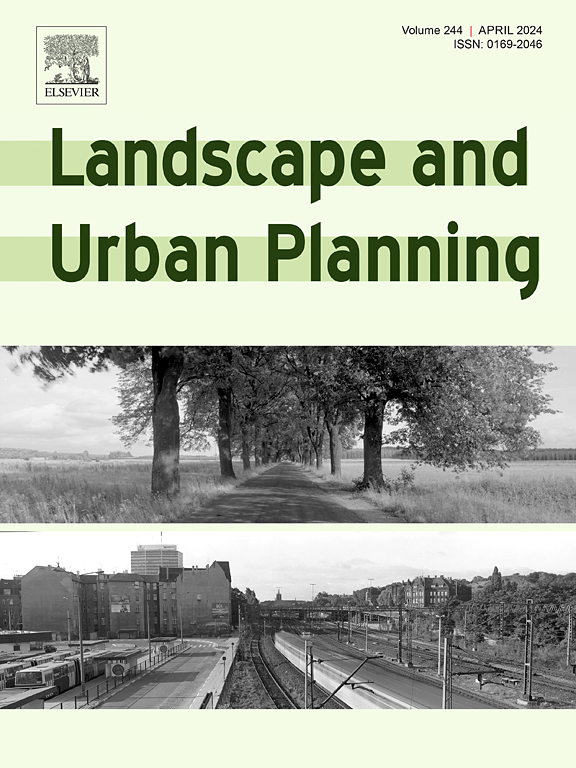A novel method of urban landscape perception based on biological vision process
IF 7.9
1区 环境科学与生态学
Q1 ECOLOGY
引用次数: 0
Abstract
Urban landscape perception is essential for understanding the interaction between individuals and the built environment, impacting urban space quality improvement. This study bridges the gap in comprehending the mechanisms, processes, and content of landscape perception that previous studies have not fully addressed. By integrating urban landscape studies with the biological vision process, a new theoretical framework is proposed, which includes an index system with 4 dimensions: color features, landscape elements, spatial forms, and landscape imagery, consisting of 30 indicators. Furthermore, a novel method leveraging Large Vision Models for color analysis, semantic segmentation, object detection, and depth prediction is introduced. This method allows for the accurate extraction of objective features of urban landscapes and uses the Random Forest to analyze the nonlinear relationships between objective features and subjective perceptions. An empirical study conducted in Chongqing demonstrates that color features and spatial forms significantly influence landscape perception, similar to the landscape elements. Moreover, ablation experiments demonstrate that our approach, based on the biological vision process, improves accuracy and fit compared to existing methods. This study elucidates crucial factors affecting landscape perception, refines and generalizes perception methods, and aids planners in navigating complex scenarios, contributing to the practical application and widespread adoption of landscape perception in urban planning.
基于生物视觉过程的城市景观感知新方法
城市景观感知对于理解个人与建筑环境之间的互动、影响城市空间质量的改善至关重要。本研究弥补了以往研究在理解景观感知的机制、过程和内容方面的不足。通过将城市景观研究与生物视觉过程相结合,提出了一个新的理论框架,其中包括一个由色彩特征、景观元素、空间形式和景观意象 4 个维度组成的指标体系,包含 30 个指标。此外,还介绍了一种利用大型视觉模型进行色彩分析、语义分割、物体检测和深度预测的新方法。该方法可准确提取城市景观的客观特征,并利用随机森林分析客观特征与主观感受之间的非线性关系。在重庆进行的实证研究表明,色彩特征和空间形式对景观感知有显著影响,与景观要素类似。此外,消融实验证明,与现有方法相比,我们基于生物视觉过程的方法提高了准确性和拟合度。这项研究阐明了影响景观感知的关键因素,完善并推广了感知方法,有助于规划师驾驭复杂场景,从而推动景观感知在城市规划中的实际应用和普及。
本文章由计算机程序翻译,如有差异,请以英文原文为准。
求助全文
约1分钟内获得全文
求助全文
来源期刊

Landscape and Urban Planning
环境科学-生态学
CiteScore
15.20
自引率
6.60%
发文量
232
审稿时长
6 months
期刊介绍:
Landscape and Urban Planning is an international journal that aims to enhance our understanding of landscapes and promote sustainable solutions for landscape change. The journal focuses on landscapes as complex social-ecological systems that encompass various spatial and temporal dimensions. These landscapes possess aesthetic, natural, and cultural qualities that are valued by individuals in different ways, leading to actions that alter the landscape. With increasing urbanization and the need for ecological and cultural sensitivity at various scales, a multidisciplinary approach is necessary to comprehend and align social and ecological values for landscape sustainability. The journal believes that combining landscape science with planning and design can yield positive outcomes for both people and nature.
 求助内容:
求助内容: 应助结果提醒方式:
应助结果提醒方式:


